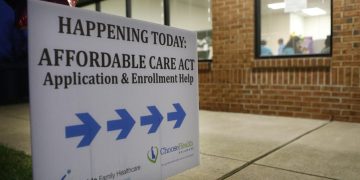A woman waits in a line outside a temporary unemployment office in Frankfort, Kentucky in June.
Bryan Woolston | Reuters
The federal government expanded the safety net for the jobless to a historic degree last year, when the U.S. was in the throes of its most rapid economic downturn in history. The CARES Act, passed in March 2020, raised weekly jobless benefits by $600 a week (and later, $300 a week), offered aid to workers typically ineligible for traditional state benefits, such as self-employed, gig workers and part-timers, and extended how long people could collect aid.
Congress twice extended the programs, last December and again this March, but opted not to do so a third time.
That means about 9 million people are poised to lose those benefits by Labor Day, according to an estimate from The Century Foundation. Another 3 million or so will see their weekly benefits reduced.
Families are scared of what comes next.
“It is going to leave some folks in a bad situation,” Sylvia Allegretto, an economist and co-chair of the Center on Wage and Employment Dynamics at the University of California, Berkeley, said of this weekend’s unemployment cliff.
“The economy, for many reasons, has not been fully recovered and won’t be for quite a while given this unfortunate but massive surge in Covid we’re seeing across the country,” she added.
The delta variant has added pressure to an already uneven economic recovery. The U.S. added 235,000 jobs in…



























































